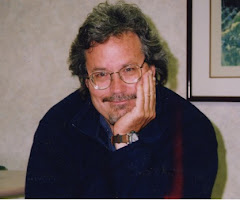

On a snowy weekend in early December we settled down with hot tea and snacks to watch this fascinating movie about Carthusian monks in the French Alps. It is a gorgeous movie. The stark beauty of the setting; the stark simplicity of the lives of the men; the stony silence of their lifestyle: these things create a setting in which little events become extraordinary: a weekly walk and chat session, a sledding party, a monk chirping away at a collection of ruddy barn cats.
Yet one wonders. Behind the scenes, is it all this silent, this perfect? As a Lutheran having inherited a certain distrust of the type, I want to peer beyond the camera's scope to find the human sin. Having read Ellis Peter's The Father Cadfael Mysteries, and the wonderful children's novels by Penelope Wilcock, not to mention Robert Browning (see below) and Martin Luther himself (De votis monasticis, 1521), I bring a certain burden of suspicion to the topic. By their obedience and faithful study and prayer, the monks expect to storm heaven, and to know God in some mystical fashion. There is definitely an implication that they are First Class Christians. Do they have a deeper sense of their sin as time goes by? And what is to be found in this Silence they ardently seek over a lifetime? I note that they are the maker's and distributors of Chartreuse, a fiery and sweet liquor of ancient recipe. 130 herbs and flowers! It's gotta be good for you. At one time it was considered an healthful elixir, before it became known as just a really good booze. Do the holy monks sample their own wares? Are they like British sailors of yore (In many other ways they are: the routine, the solitude, the deprivation; the communing with the natural world) who received their daily cup of rum?
One other thing: this movie won a host of awards, including one at the Sundance Film Festival. Was this for the beauty of the cinematography? The otherworldly worthiness of the monks' lives? Were they praiseworthy because of their minimal carbon footprint? Certainly it wasn't that they worshipped Christ?
My Buddhist chiropractor pipes Gregorian chant into her adjustment rooms. I've often wondered if the language were English and not Latin, if she'd still do so. The content would certainly offend her and her clientele.
Anway, a snippet of the promised Robert Browning poem: Soliloquy of the Spanish Cloister. Here is the "other view" of monastic life.
|


3 comments:
interesting post dear brother!
My mind immediately lept to our God being The Word. He is so not silent. But maybe my need to be heard is part of my original sin, and the discipline of my silence let´s me hear the Word of Life.
It matters not at the end.
We will all be singing loudly, in perfect pitch and in perfect unison in perfect response to that Word.
Those are some nice verses. What is a cork-crop?
Cork, the organic real bobber material, comes from cork oak. Portugal produces a lot of this. I can suppose a monastery might have had it as an income source, and Brother Lawrence, obviously, spends a bit too much time worrying about the ledger.
We all know how Browning love the Portugee.
Post a Comment